Featured Resource
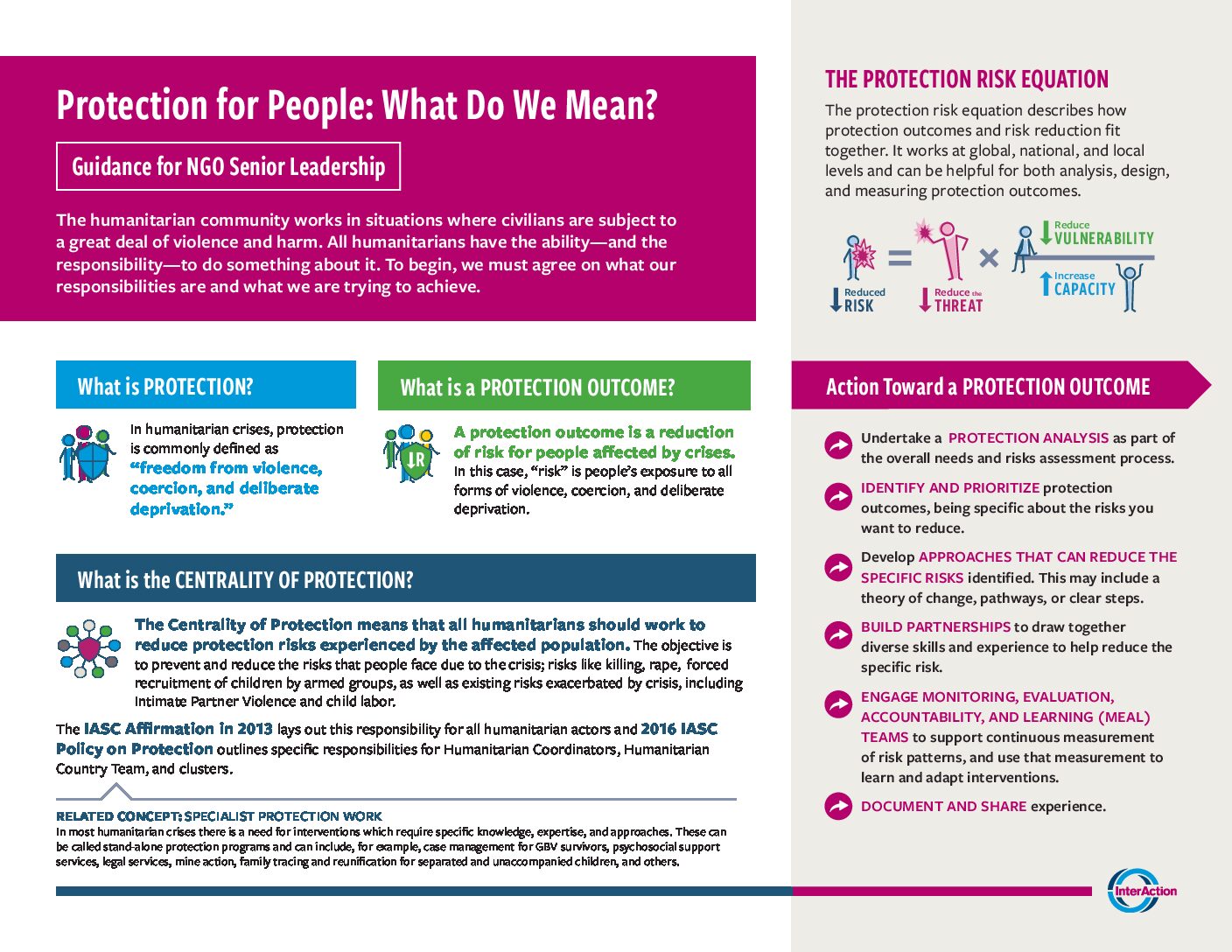 Protection for People: What Do We Mean? Guidance for Senior Leadership
Protection for People: What Do We Mean? Guidance for Senior Leadership

InterAction has published and collected resources including tools, reports, project evaluations, blogposts, and others from Members and partners that promote results-based approaches to protection since 2012; all of which can be found in this resource library. To explore practical case examples of RBP in practice, visit the case example page. Background photo By: Simon Moricz Sabjan is licensed under the CC BY-NC 4.0 license.
Building off of InterAction’s previous mission to Myanmar, which focused on NGO roles in relation to the overall protection leadership, coordination, and strategies within the country, the second mission, conducted jointly with the Protection Information Management (PIM) initiative (co-facilitated by the Danish Refugee Council (DRC) and UNHCR) examined the methods and approaches actors use to achieve protection outcomes, using human trafficking in Rakhine state as a case example.
This “introductory paper” from Bond provides insight into how CSOs can effectively use adaptive management, defined as a flexible exploratory approach to programming and development designed to address complex contexts in which knowledge of causation is low.
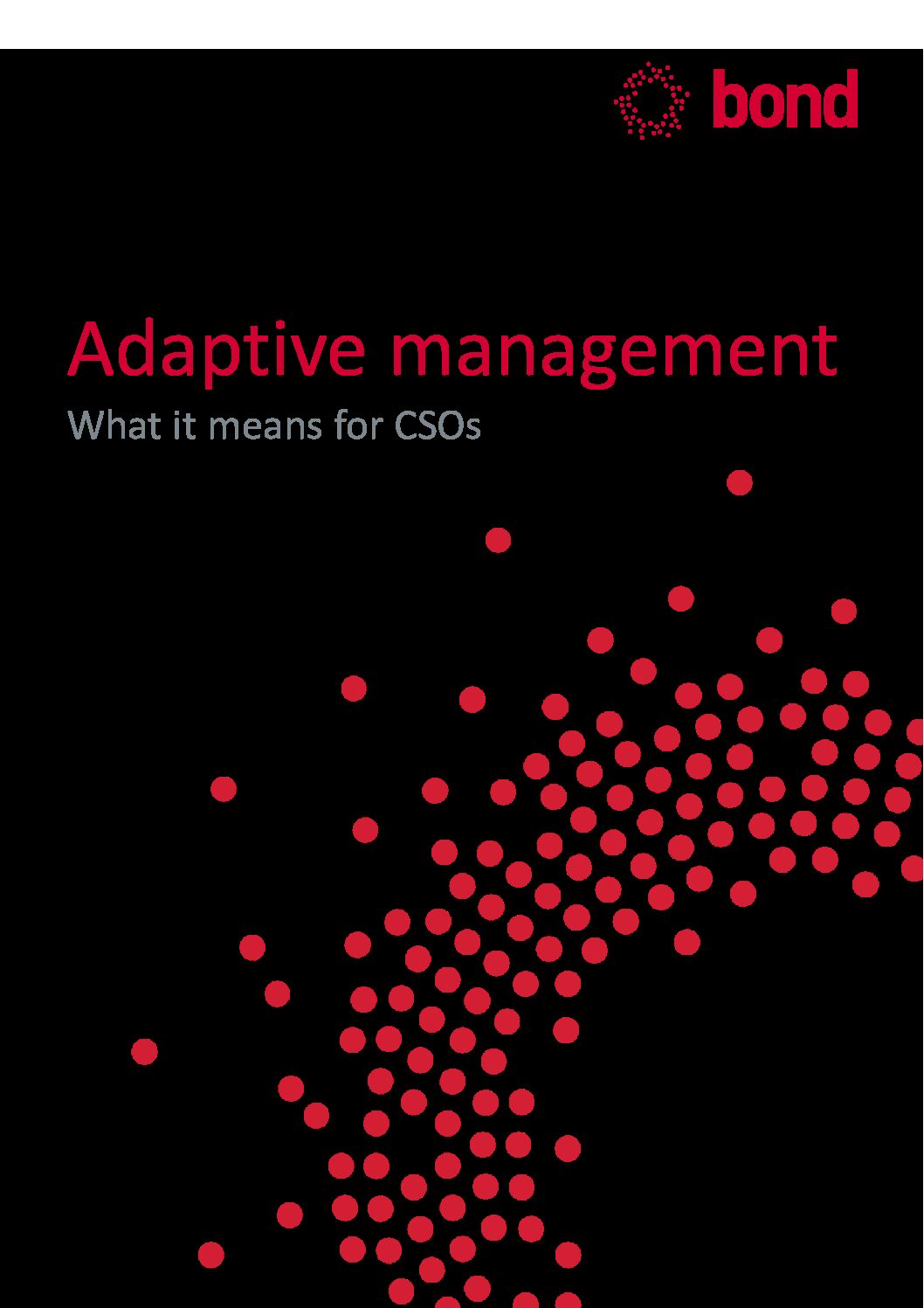
The analysis and report, conducted by the Small Arms Survey, offers guidance on tangible innovation areas for those working to improve GBV globally to enhance effectiveness and accelerate impact. The research identified “innovation challenges” to address the gaps in GBV programming and aims to engage new actors and partners from different arenas to overcome enduring GBV challenges.
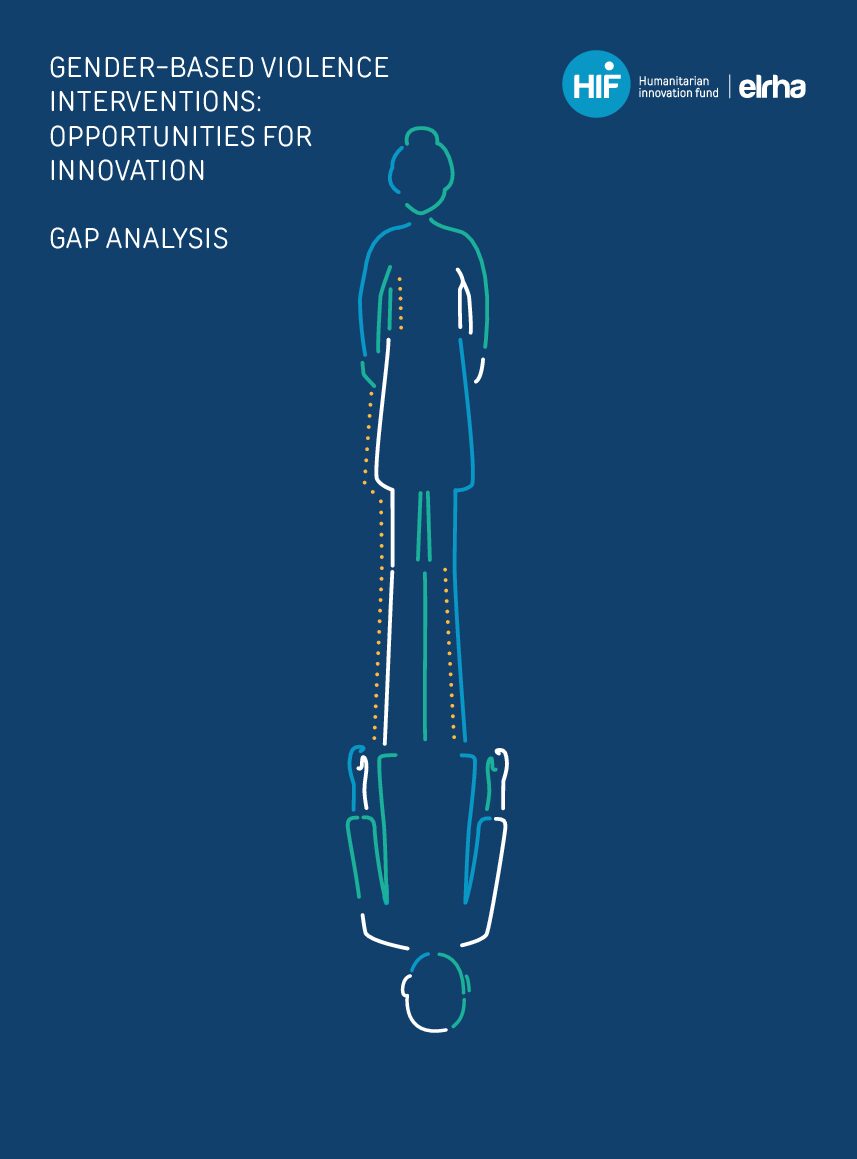
This report, a collaborative initiative from the International Rescue Committee (IRC) and Mercy Corps, explores what adaptive management looks like in practice, what impact it can have on programs, and how to best support this approach.
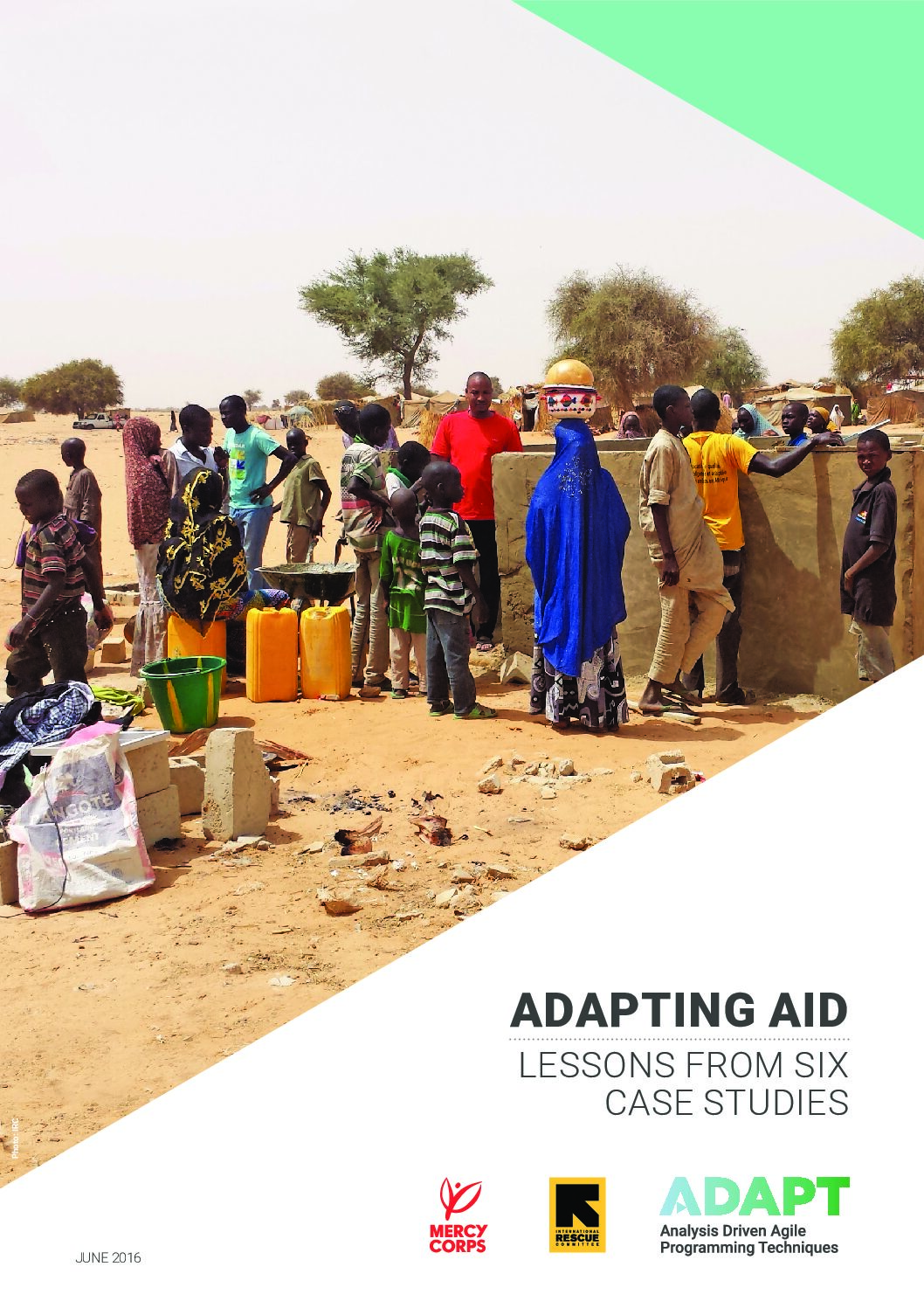
In April 2016, InterAction visited Colombia to identify and document the key elements of results-based protection in practice. The visit led to key recommendations for actors in Colombia to strengthen the prevention and response to the use and recruitment of children by armed groups.
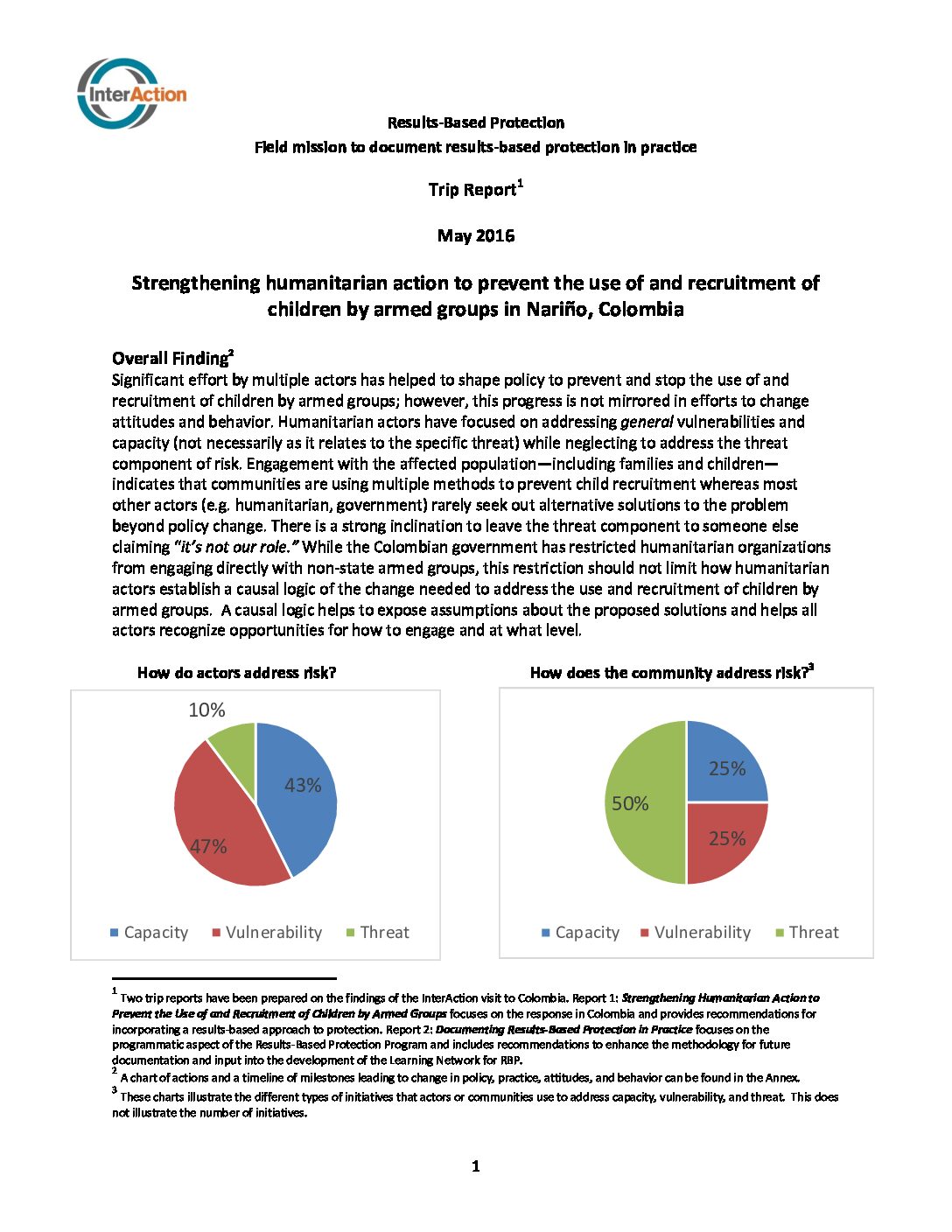
The report by Geneva Call focuses on the ways in which ANSAs understand humanitarian action and their knowledge and acceptance of humanitarian principles and IHL.
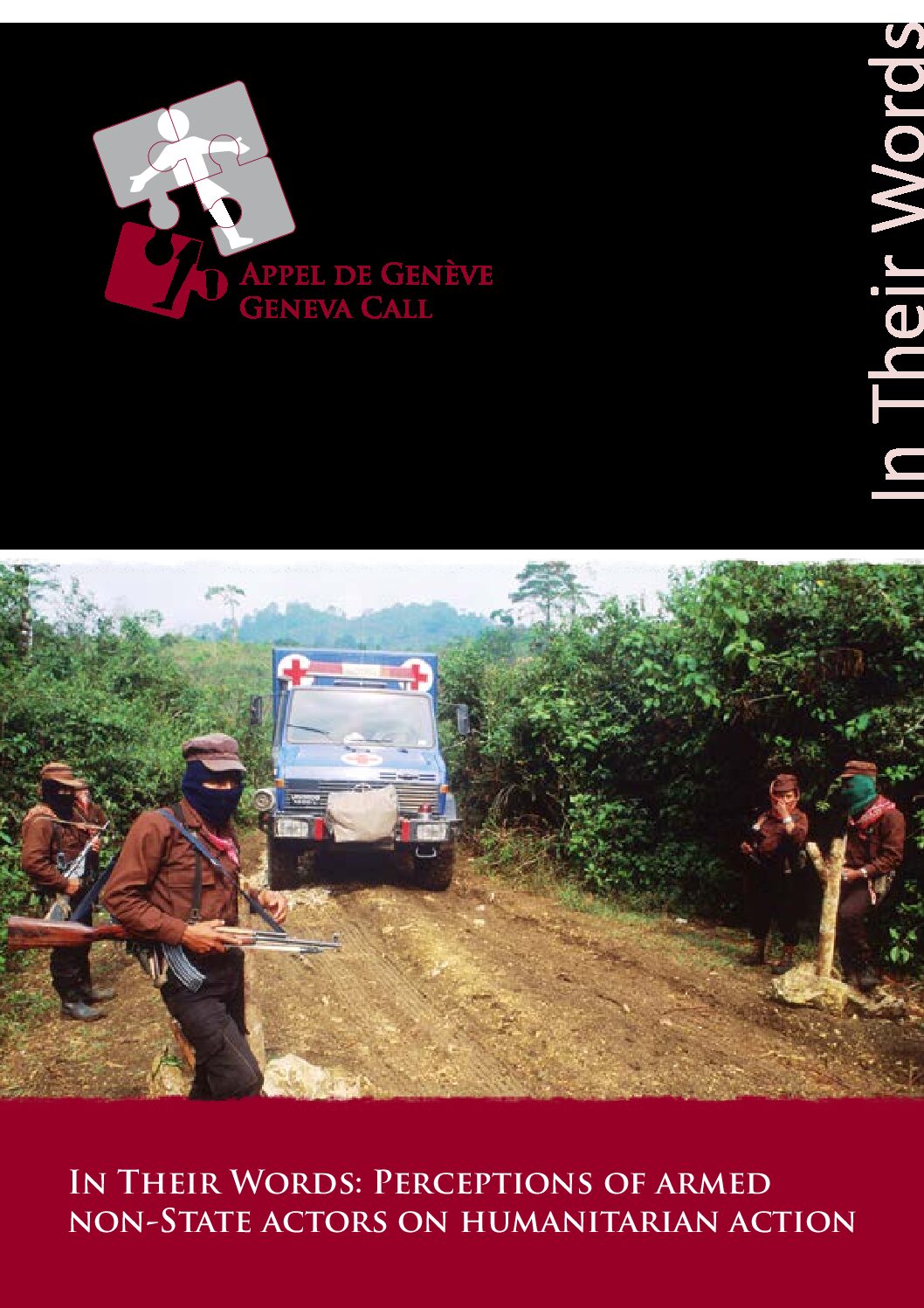
This research conducted by Mercy Corps in Nigeria explores the vulnerabilities and protective strategies among youth who were recruited into Boko Haram and those who resisted recruitment efforts.
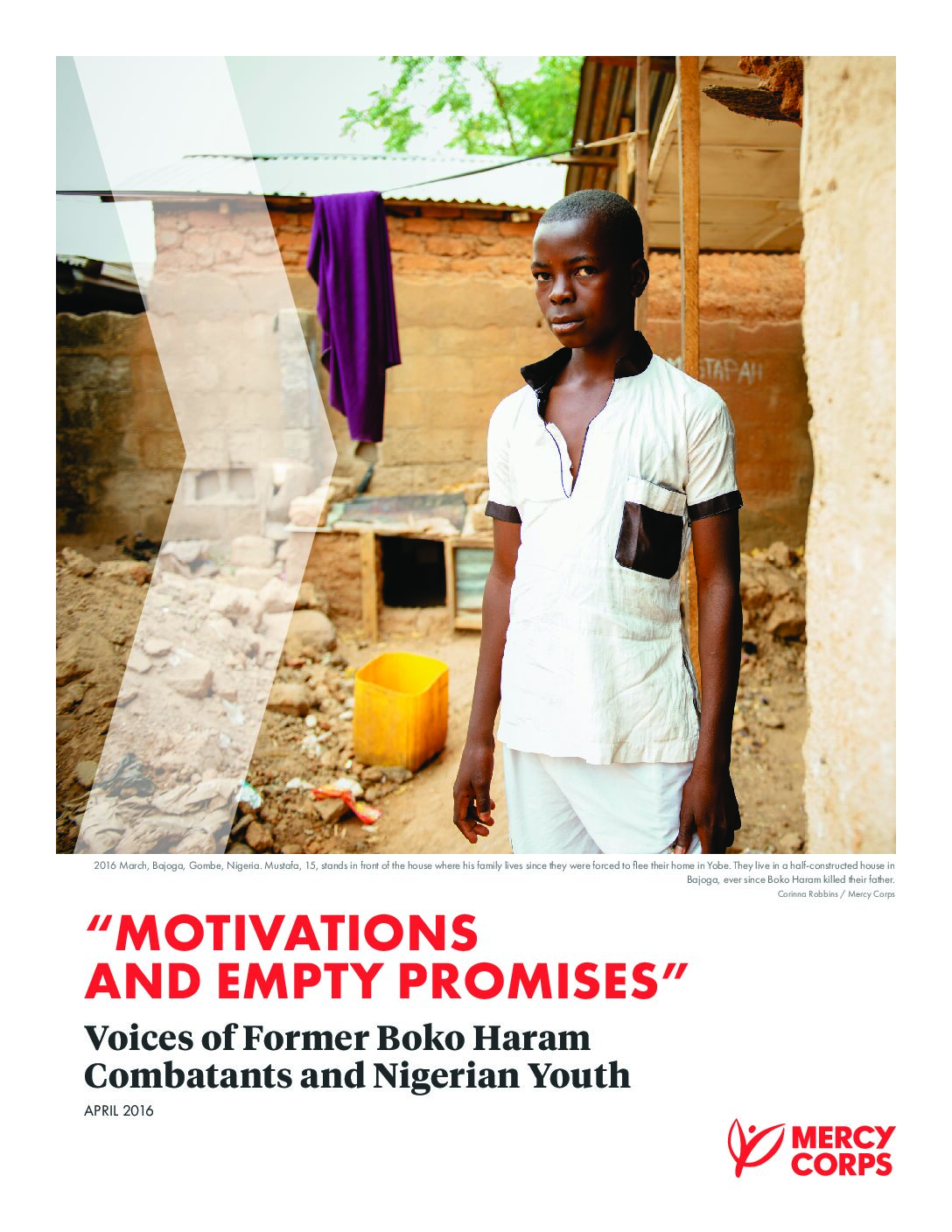
On November 16-17, 2015 over 40 practitioners met in Washington, DC to discuss and examine how to better achieve protection outcomes in humanitarian action.
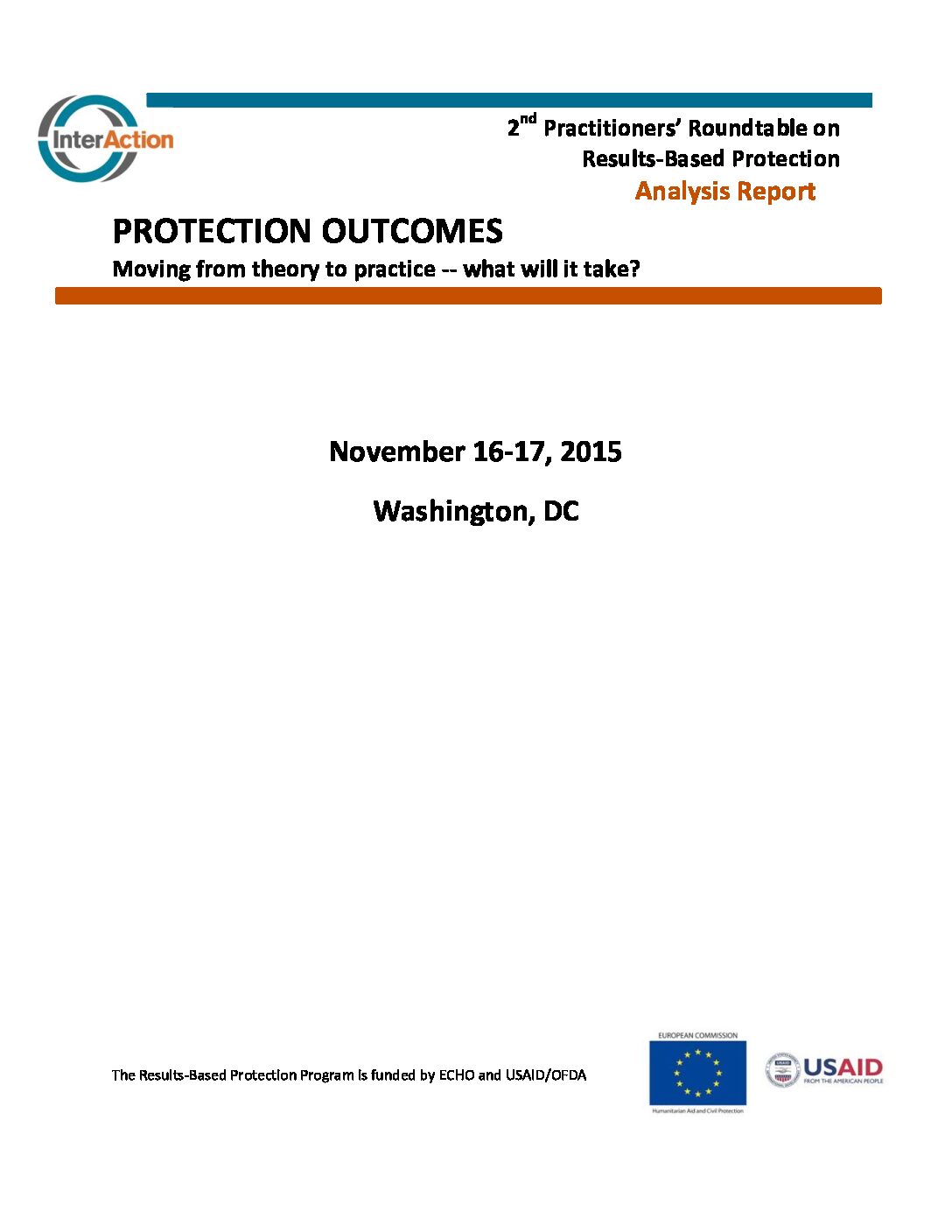
The objective of the Protection Strategies webinar series and discussion forum was to capture good practice examples of results-based protection strategies. The goal was to shift discussions from the challenges of protection strategies to a more forward-thinking dialogue and an elaboration of the differences in approaches, potential lessons, and proven methodologies that enhance protection strategies.
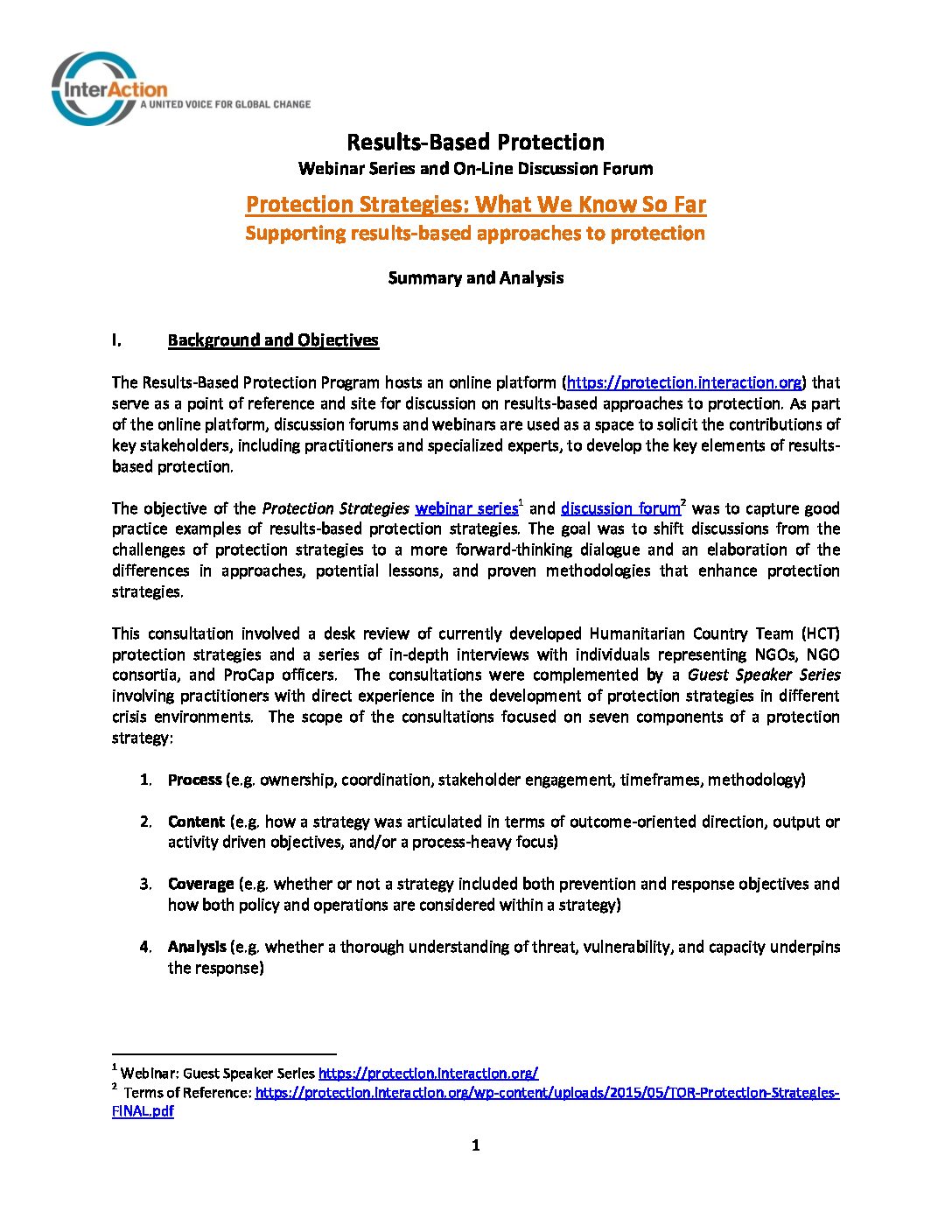
"*" indicates required fields